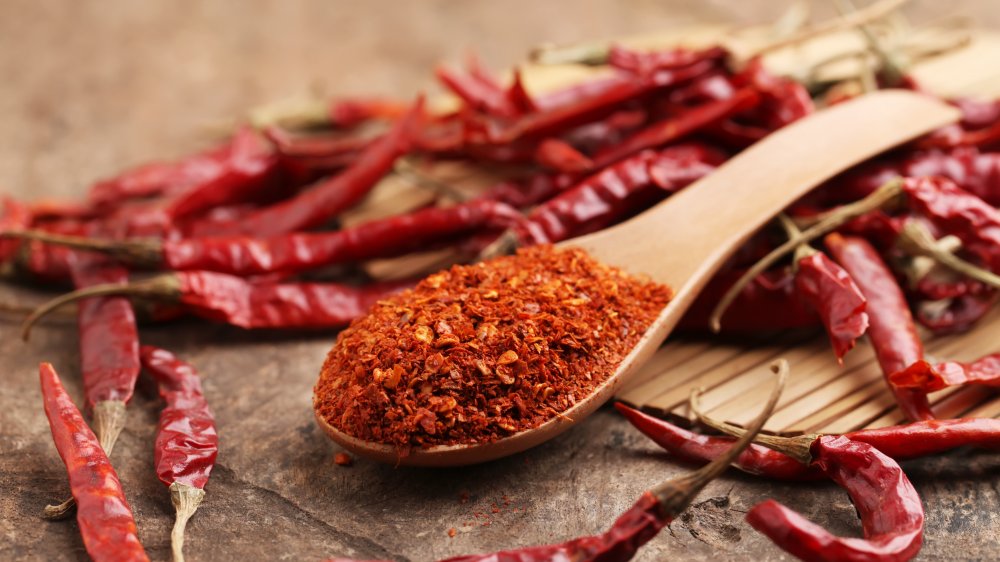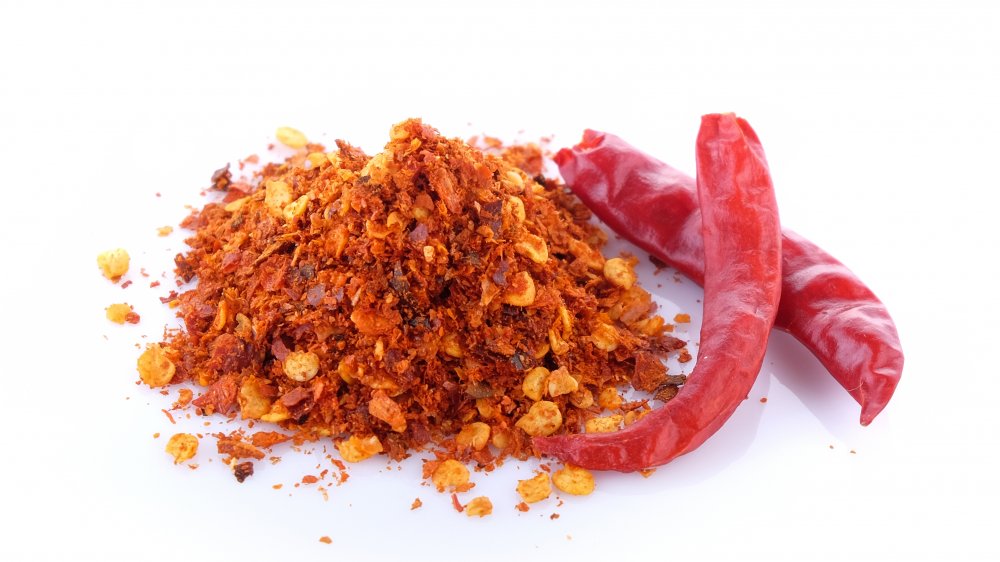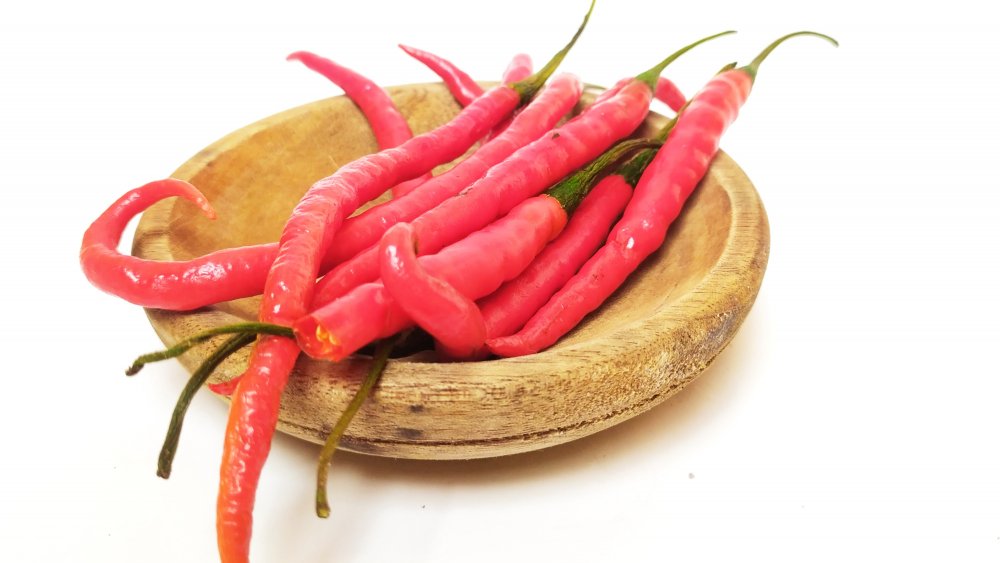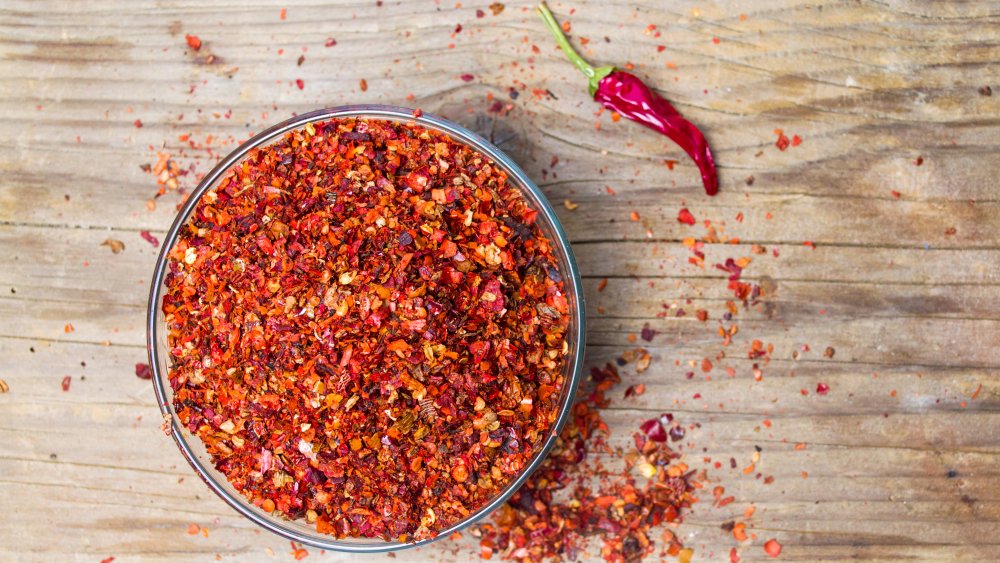What Cayenne Pepper Really Does To Your Body
Cayenne pepper is great for those who like their food hot, hot, hot. The spicy red powder can be added to just about any dish to raise the heat level without changing the basic flavor profile too much. In fact, the Pioneer Woman adds it to her iced coffee and we promise it can even taste great in smoothies. In addition to spicing things up, cayenne pepper also seems to have a number of health benefits.
Monterey Bay Holistic Alliance, a nonprofit health education organization, heartily endorses the use of this spice that has been cultivated for over 7,000 years. While cayenne peppers were originally used for decorative purposes and then as a food flavoring in their native South America, eventually their healing properties became known — properties that have been validated in modern times by numerous medical studies.
Cayenne has become a viable natural remedy for a long list of ailments ranging from flatulence to hemorrhoids to snakebites and even delirium. Chief amongst its many benefits, however, is its ability to boost metabolism and curb appetite, relieve pain, and possibly even slow the growth of cancer.
Cayenne may help with weight loss
According to Healthline, there have been a number of medical studies showing that capsaicin, the active ingredient in cayenne peppers, not only makes your food hotter, but it also increases the amount of heat produced by your body. And more heat equals more calories burned, which means, you guessed it, weight loss! Yay!
One study conducted by researchers in England showed that people who added cayenne to their breakfast meals along with a medium-chain triglyceride such as coconut oil burned over 50 percent more calories than those who ate a similar meal minus the pepper and oil. A later study conducted by Purdue University, however, showed that adding one gram of cayenne to a meal only led to an additional 10 calories burned over a four and a half-hour period, so your mileage may vary.
In addition to its potential metabolism-boosting properties, cayenne may also have the ability to suppress your appetite to some degree. One medical study conducted in 2005 showed subjects taking capsaicin supplements eating 10 percent less and subjects drinking a capsaicin beverage eating 16 percent less than subjects who didn't consume any capsaicin.
Cayenne can take away your pain
While eating cayenne may prove to be a pain, at least if you're not a fan of spicy foods, it actually has pain-relieving properties if you apply it externally. Healthline revealed that the capsaicin it contains has the ability to reduce the amounts of something called substance P, which is a neuropeptide that the body produces so it can travel to the brain and signal that pain is being felt. Less of this substance means that less pain is felt, which is why, according to Health, capsaicin creams may be prescribed or available over the counter for other conditions like arthritis, muscle and joint pain, lower back pain, post-surgical pain, or pain resulting from a nerve condition such as shingles.
One word of caution as regards to topically-applied cayenne or other capsaicin-containing products, though: Be sure not to use them on any area where you have a wound or broken skin. That would cause more pain than it would cure.
Cayenne may kill cancer cells
A 2002 study published in the Journal of the National Cancer Institute (via PubMed) makes the claim that the capsaicin contained in hot chile peppers such as cayenne actually "makes tumor cells commit suicide." Other studies referenced by Healthline also indicate that the capsaicin compound may have the power to slow the growth rate of cancerous cells in certain types of cancer, including pancreatic, prostate, and skin cancers.
While all of this research certainly sounds as if it could be promising, this does not mean that you'll be able to cure cancer with the contents of your spice cabinet alone, more's the pity. All of the studies to date surrounding the potentially cancer-curing properties of capsaicin involve animal subjects or other types of lab testing, and there is no evidence, as of this writing, regarding the effects of capsaicin on cancer cells from a live human patient.



